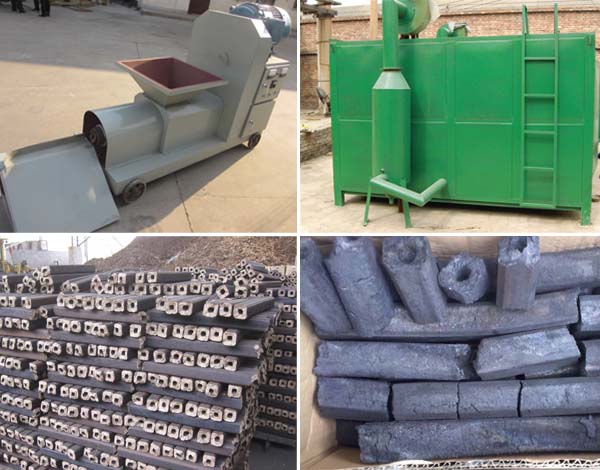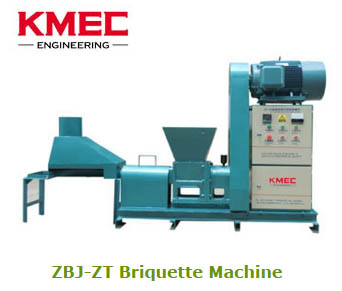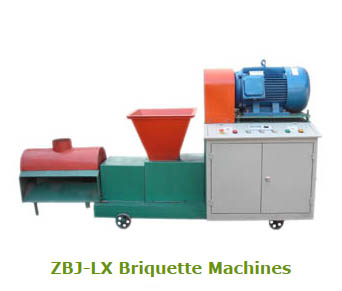Effect of carbonizing speed and temperature on the strength of mechanism charcoal
It is well known that carbonizing of briquette produced by the
briquette machine can increase the added value of briquettes. During the carbonization process with the carbonizing furnace, the production of charcoal decreases gradually with the increase of carbonizing temperature. The higher the final temperature, the lower the yield of charcoal and the higher carbon content of the charcoal. Therefore, you should well control of final carbonizing temperature. On the premise of guarantee the quality of charcoal, reduce the carbonizing temperature as much as possible. Generally, the

carbonizing temperature for low temperature carbonization with
carbonizing furnace should be remained in 450-500 degrees, the temperature for medium temperature carbonization should be remained in 600-700 degrees, while the temperature for high temperature carbonization should be above 800 degrees. The mechanical strength of charcoal varies with the final temperature and the heating rate during drying and carbonization (especially the speed in exothermic reaction). Test shows that under the same final temperature of charcoal firing, the mechanical intensity of charcoal produced by carbonizing furnace increases with the time of burning. When the temperature is 300 degrees when firing , the mechanical strength of charcoal is the largest and mechanical strength is smallest in 400 degrees. When further improve the fire temperature, the mechanical strength of the charcoal also increase, mechanical strength of 700 degrees is the same with 300 degrees.
Carbonizing pressure
Carbonizing process is usually carried out under atmospheric pressure. If the increasing of pressure can increase the production of charcoal, lowering the stress may decrease the charcoal production. However, regardless of increasing or reducing pressure, it has higher requirements on equipment, and the operation is more complicated. Especially when reducing the pressure, there is a risk of explosion. As a result, carbonization is generally made under atmospheric pressure.
The moisture content of raw materials
Natural wood moisture content direct impact on charcoal carbonization time in the process. Generally speaking, it is advisable that the moisture content of wood should be kept at 15-20%. Generally, the moisture content of natural wood should be between 20-30%, moisture content of mechanism charcoal should be between 8-10%.
Water of pyrolysis reaction
There are two sources of water exhausted in wood pyrolysis, one is the water contained in the wood, the other is the water produced by the pyrolysis reaction. The amount of reaction water produced in the process of wood pyrolysis depends on the types of wood, pyrolysis method, the final carbonization temperature, heating rate, etc. Under the normal carbonizing speed, the weight of the reaction water accounts for 24-28% of the weight of wood in absolute dry condition. And in different stages of pyrolysis, the water produced is different. The faster the pyrolysis, the less the water production. If you want to increase production of charcoal, you should slow pyrolysis and improve the production of reaction water, because the yield of reaction water can reduce the consumption of carbon in the wood, thus improve the production of charcoal.
----------------------------------------------------------------------------------------------------------




